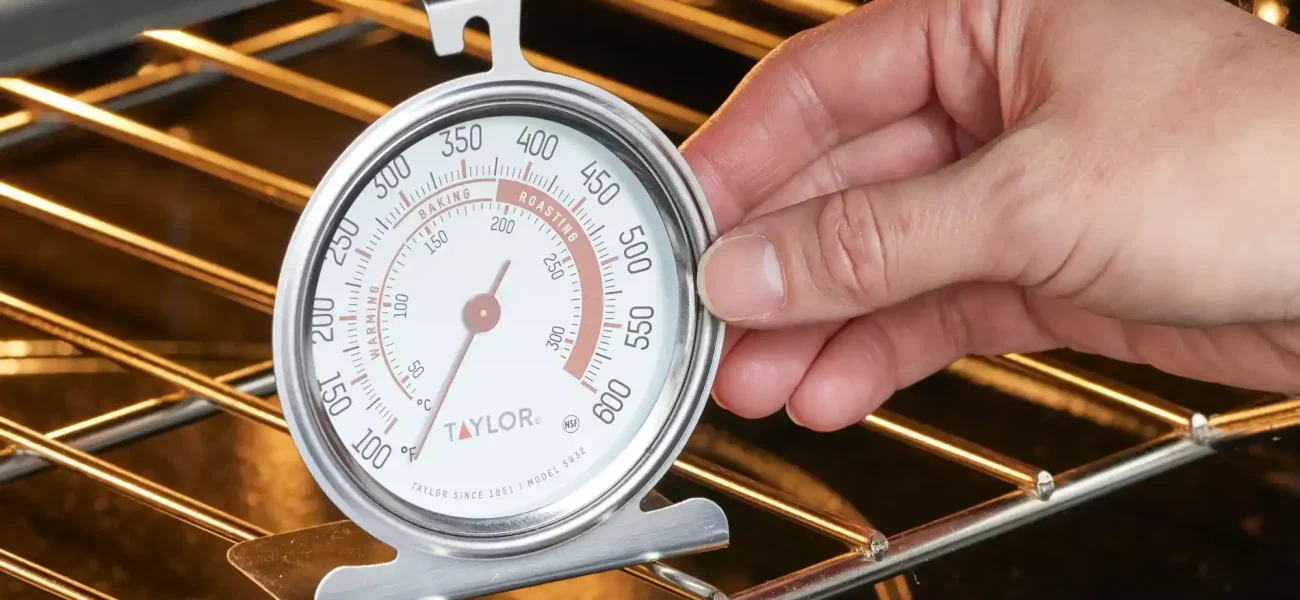An oven that refuses to heat becomes more than just a minor inconvenience. It interrupts daily routines, delays meal preparation, and creates unnecessary stress in the kitchen. Whether you rely on your oven for regular cooking, baking, or meal prepping, proper heating is the core of its functionality. When that function fails, understanding the underlying causes becomes extremely important. A non-heating oven can be linked to mechanical faults, electrical failures, gas supply issues, or worn-out internal components. This detailed guide explores complete troubleshooting steps to help identify the reasons behind heating issues while also highlighting when to seek professional oven repair services to restore the appliance safely and effectively.
Understanding How Your Oven Generates Heat
Before troubleshooting heating problems, it is necessary to understand how modern ovens deliver heat. Electric ovens use heating elements, thermostats, sensors, and control boards to regulate temperature and ensure consistent performance. Gas ovens rely on ignition systems, safety valves, pilot assemblies, and burners to produce heat.
Each component plays a specific role. If one part malfunctions, the entire heating cycle can be disrupted. That is why an oven that is not heating should never be ignored. Some issues may be simple, while others require professional diagnosis, especially when electrical or gas-related faults are involved. Many homeowners turn to expert services such as Hafixer home appliances repair to ensure safe and accurate restoration of their oven’s heating performance.
Common Causes Behind Oven Not Heating Issues
An oven may fail to heat for several reasons, and the severity of the problem can vary. One of the most common causes is a defective heating element. Over time, these elements may crack, burn out, or simply lose efficiency. When this happens, the oven may turn on but never reach the required temperature.
Another frequent cause is a faulty thermostat or temperature sensor. These components regulate the oven’s internal heat. If they malfunction, the oven may believe it has reached the desired temperature even when it has not. This leads to underheating or no heating at all.
Gas ovens often experience ignition problems. A weak or broken igniter cannot open the gas valve or ignite the gas inside the burner. This results in the oven failing to heat entirely. Such issues are best inspected by trained technicians familiar with gas systems and professional oven repair procedures.
Control board defects, wiring failures, blown fuses, and tripped breakers can also prevent heating. These electrical issues can disrupt communication between the oven’s internal components and must be diagnosed with proper tools and expertise.
Troubleshooting Electric Ovens That Won’t Heat
Electric ovens are typically easier to troubleshoot because their components are straightforward. If your electric oven does not heat, the first step is checking the heating elements. A visual inspection may reveal signs of damage such as blistering, discoloration, or breakage.
If the heating element appears normal, the next step is checking the temperature sensor. A faulty sensor often sends inaccurate readings to the control board, preventing the oven from heating. Even slight variations in sensor readings can disrupt performance.
Electrical connections also play a major role. Loose wires or internal damage can cut off power to the heating elements. Although homeowners may notice the issue, resolving it often requires a technician skilled in oven repair to fix wiring safely and ensure proper reconnection.
Troubleshooting Gas Ovens That Won’t Heat
Gas ovens require more careful inspection because they involve flammable fuel and ignition components. If a gas oven fails to heat, the igniter is the most common culprit. A weak igniter may glow but still fail to ignite the gas. This prevents burners from heating the oven chamber.
The gas supply should also be considered. A restricted gas line, malfunctioning regulator, or closed valve may stop gas from reaching the burner. Some issues may even be caused by debris accumulation inside the burner openings, preventing proper gas flow.
Safety valves in gas ovens prevent gas from releasing without a functioning ignition spark. If the valve malfunctions, it will not open, making heating impossible. Gas-related troubleshooting should always be done carefully, and experts from Hafixer home appliances repair are often consulted to safely restore heating performance in gas ovens.
The Role of Thermostats and Sensors in Heating Performance
Accurate temperature regulation depends on thermostats and sensors working correctly. When these components fail, ovens often heat unevenly, take too long to preheat, or fail to heat entirely.
A malfunctioning thermostat may constantly turn the oven off even though the internal temperature has not reached the set point. Similarly, a damaged sensor may send false readings, tricking the oven into shutting off heating prematurely. These issues require proper diagnosis because replacing sensors without confirming the root cause may not solve the problem. Professional oven repair technicians use specialized diagnostic tools to test sensors and thermostats accurately.
When the Control Board Fails to Communicate Properly
The control board acts as the central processing unit of modern ovens. It manages heat output, coordinates signals from sensors, and regulates oven functions. If the control board malfunctions, the oven cannot operate correctly.
A failing control board may display error codes, fail to respond to settings, or prevent heating entirely. In some cases, the board may still function partially but restrict heat from reaching full capacity. Control board repairs require technical knowledge, and replacement often demands expertise from authorized service providers.
Oven repair professionals carefully assess whether the board needs reprogramming, maintenance, or full replacement to restore proper heating.
Internal Component Wear and Tear Over Time
Ovens endure high temperatures, consistent use, and demanding cooking cycles. Over time, internal components such as wiring, connectors, and insulation may degrade. Worn wires can cause intermittent heating problems, while weakened connectors may prevent electrical current from reaching the heating elements.
Gas ovens may also experience wear in igniters, valves, and burners, leading to reduced heating performance. Regular maintenance prevents long-term damage and ensures the appliance continues operating at safe temperature levels.
Experienced technicians, such as those from Hafixer home appliances repair, often recommend routine servicing to avoid unexpected breakdowns and costly repairs.
Why Professional Diagnosis Is Often Necessary
While many homeowners attempt basic troubleshooting, deeper issues require professional evaluation. Oven components are interconnected, and misdiagnosing one part can lead to unnecessary replacements and additional costs.
Safety is another reason professional diagnosis is important. Electrical and gas ovens pose risks that should never be underestimated. Incorrect handling of wiring, heating elements, or gas lines can create fire hazards or gas leaks.
Trained technicians use tools designed specifically for appliance diagnostics. These tools measure current flow, temperature output, gas pressure, and sensor resistance to identify the root cause accurately. This ensures effective and reliable oven repair without guesswork.
How Professional Repair Services Solve Heating Issues
When technicians diagnose your oven, they follow structured methods to ensure a complete resolution. They begin with a full inspection of heating elements, ignition systems, wiring, and internal components. They also evaluate control boards, thermostats, fuses, and mechanical parts.
By identifying the exact failure point, they perform precise repairs without replacing unnecessary components. This provides long-term reliability and optimal heating performance. Many customers prefer expert services because trained professionals not only fix immediate issues but also prevent potential future breakdowns.
The experience offered by companies like Hafixer home appliances repair ensures that ovens are restored with high technical accuracy, keeping them safe, efficient, and fully functional.
Preventive Steps to Avoid Future Heating Problems
While every oven will require repairs eventually, preventive actions significantly reduce the likelihood of major issues. Keeping the interior clean, avoiding excessive moisture, and regularly inspecting heating elements can extend the appliance’s lifespan.
Gas ovens should be checked periodically for proper ignition performance and adequate ventilation. Electric ovens benefit from sensor calibration and regular checks of heating elements.
Preventive servicing once or twice a year helps maintain optimal heating levels and ensures the appliance remains in good condition. Professional recommendations from experienced oven repair technicians can greatly enhance overall performance and reliability.
When It Is Time to Replace Instead of Repair
Not all ovens are worth repairing. Older appliances that frequently malfunction or fail to maintain stable temperatures may be nearing the end of their useful life. If repairs become too frequent or expensive, replacing the oven may be the better choice.
Technicians can help determine whether repair or replacement is the most cost-effective solution. They evaluate the age of the appliance, condition of internal components, and overall performance before suggesting the best option.
Conclusion
An oven that is not heating can disrupt daily life and create unnecessary frustration. Understanding the root causes behind heating problems allows homeowners to take appropriate steps, whether through basic troubleshooting or professional repair. Issues may stem from heating elements, ignition systems, thermostats, sensors, wiring, or control boards. Each component plays a vital role in the oven’s heating cycle and must be examined carefully.
Professional services remain the safest and most reliable solution for diagnosing and repairing heating failures. Companies like Hafixer home appliances repair offer specialized knowledge, proper tools, and accurate troubleshooting techniques to ensure ovens return to optimal performance. With timely maintenance, expert repairs, and awareness of component functionality, homeowners can ensure their ovens operate efficiently, safely, and consistently for years to come.




